The Samsung Galaxy Note 4 and HTC One (M8) are both high-end devices, and both pack a lot of great features. You’d be forgiven for thinking that the Note 4’s phablet nature is the only significant difference between the two smartphones, but there’s plenty besides to distinguish them. Read on as we delve into all the key differences between the two mobile heavyweights.
Size
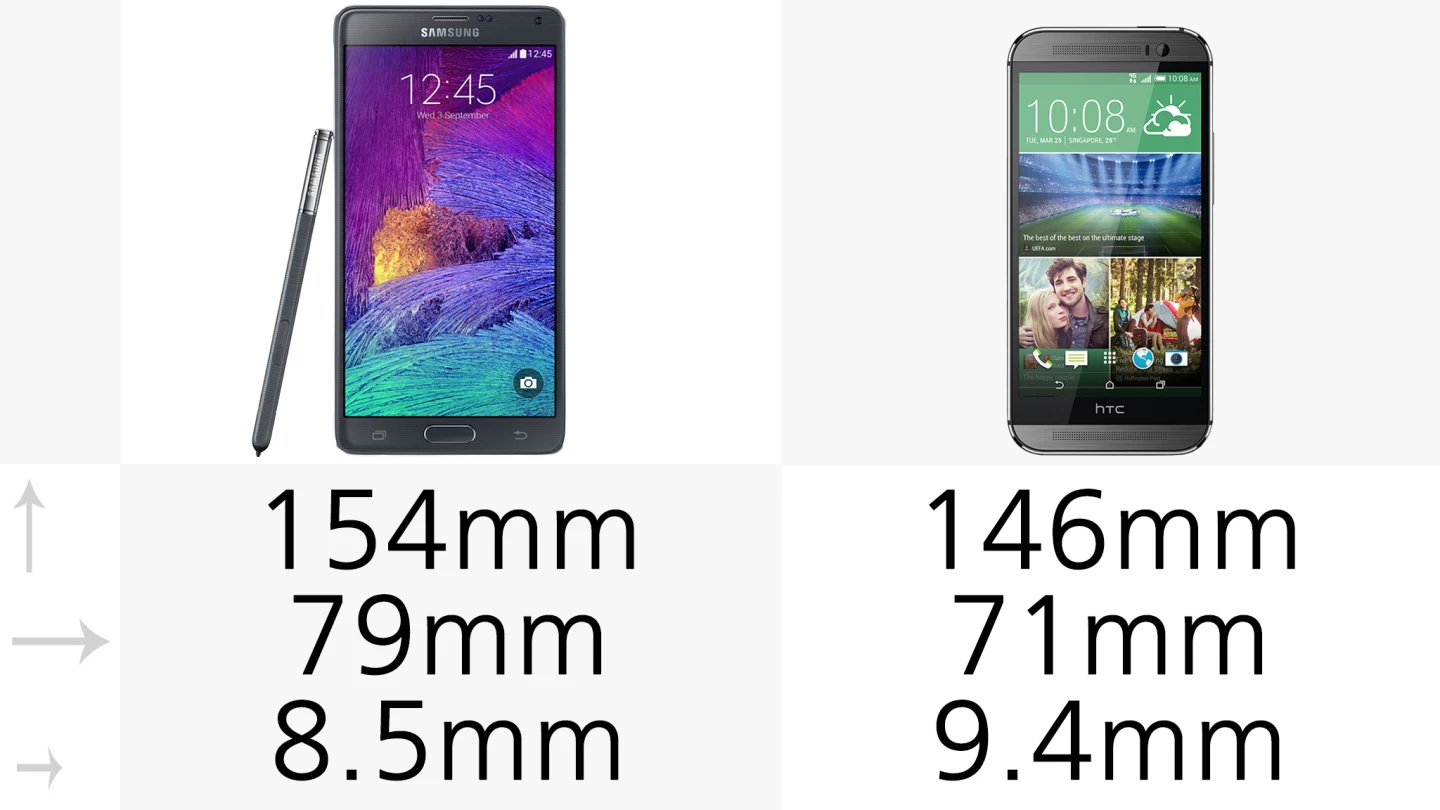
While the Galaxy Note 4 is 5.5 percent longer and 11 percent wider than the One, Samsung’s new device is almost 10 percent thinner than its rival.
Weight
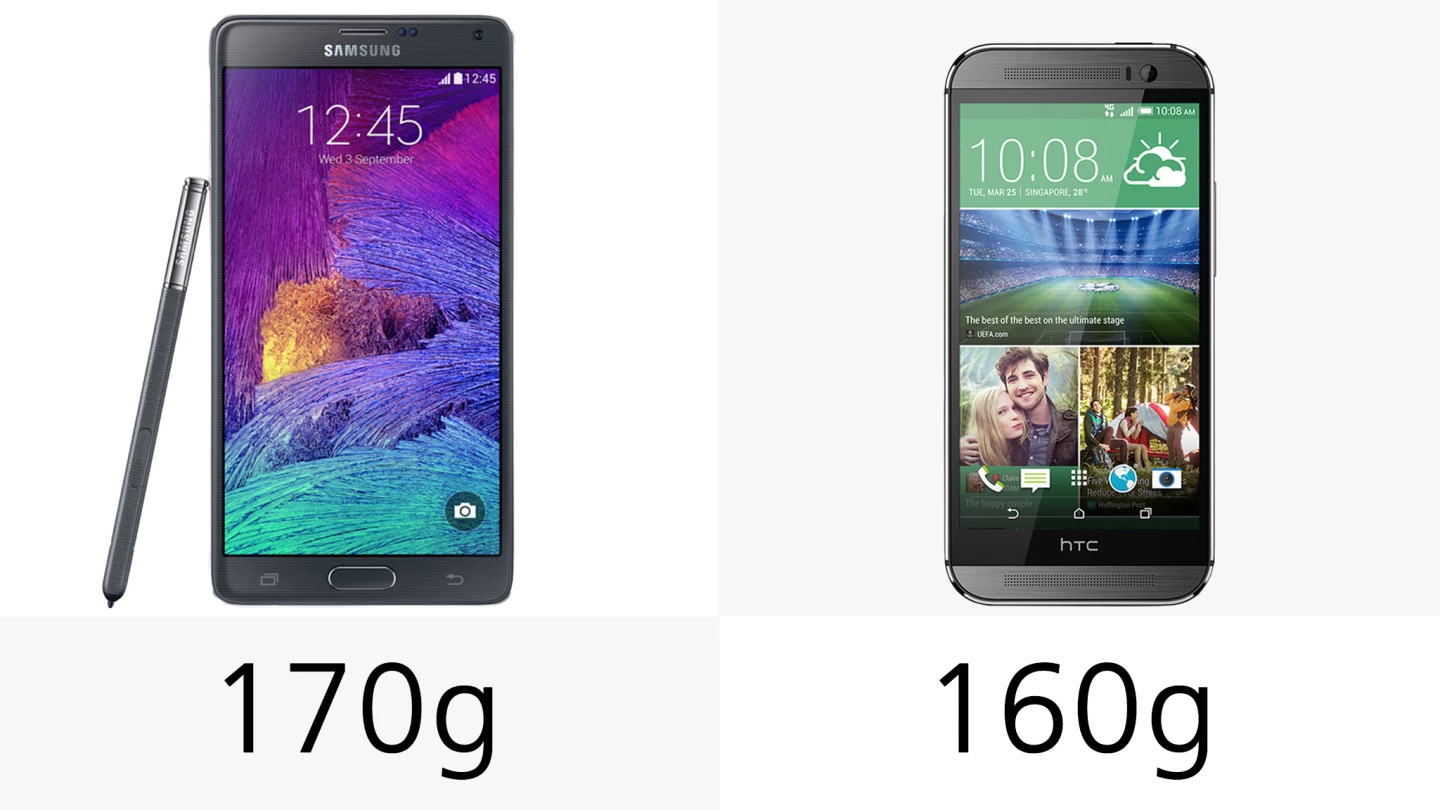
The Note 4 is 6 percent heavier than the One.
Build
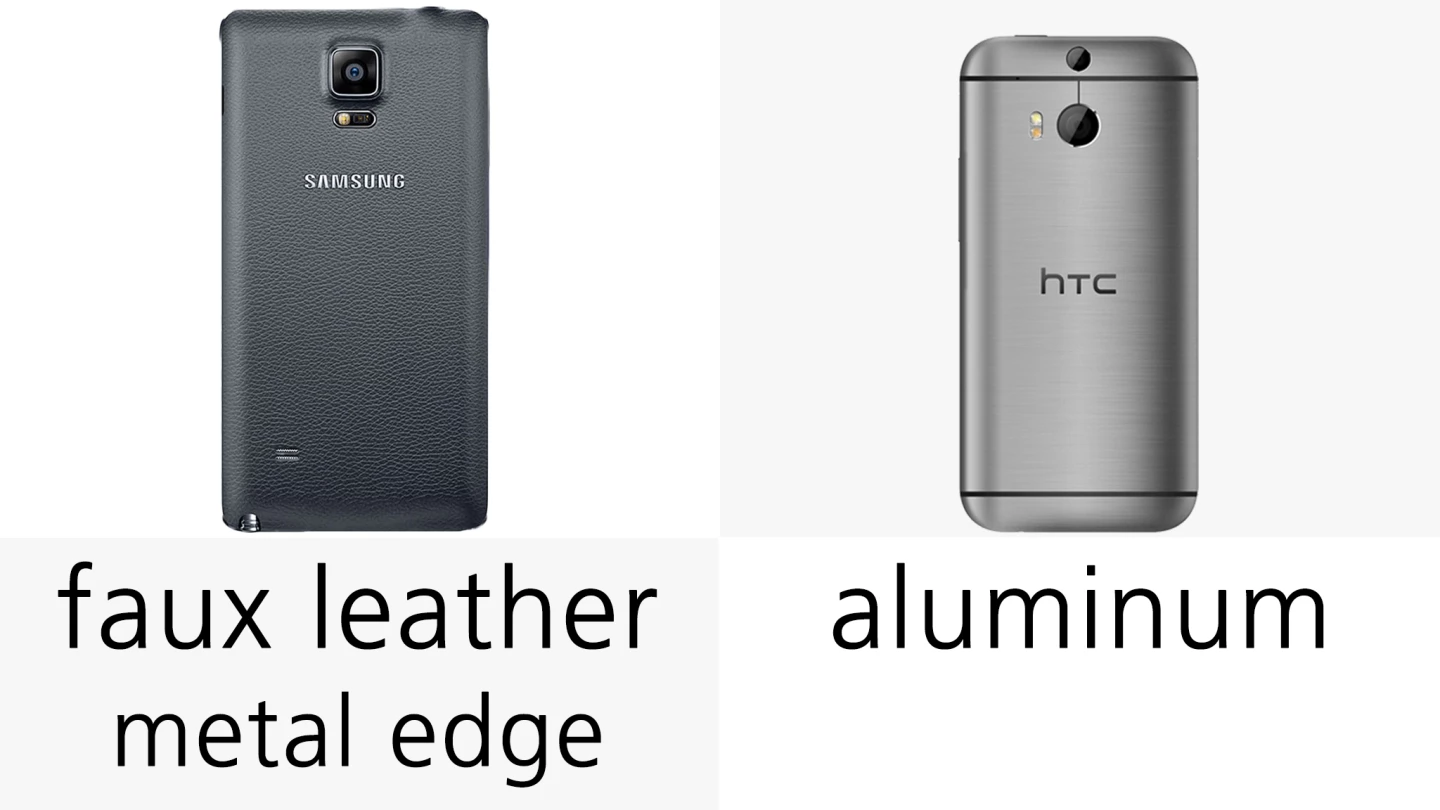
While HTC’s device features a full metal build, Samsung’s new handset opts for a plastic back with a metal band around its edges, similar to the company’s smaller Galaxy Alpha smartphone. Both devices feel solid and premium in the hand.
Colors
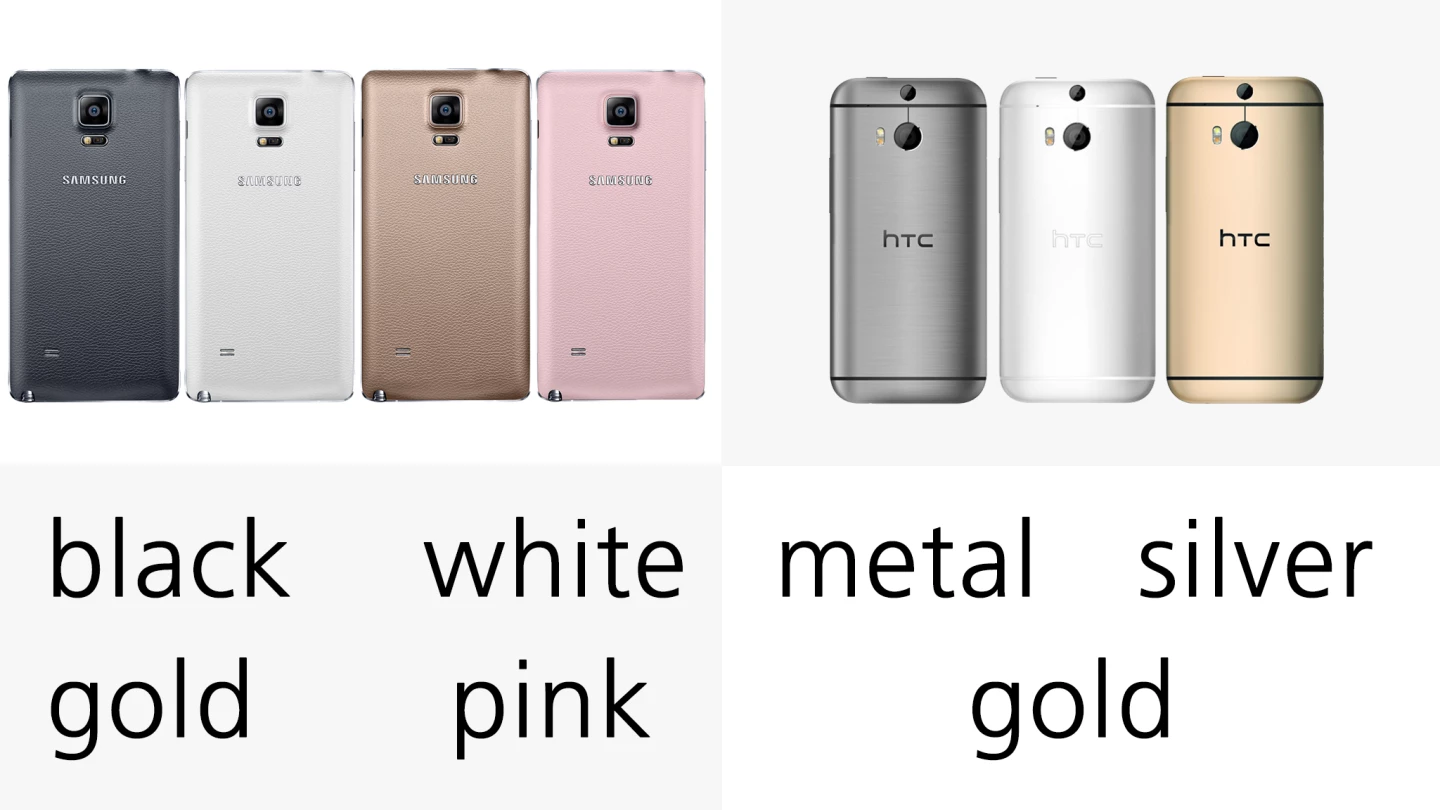
The two handsets are available in a range of colors.
Display (size)
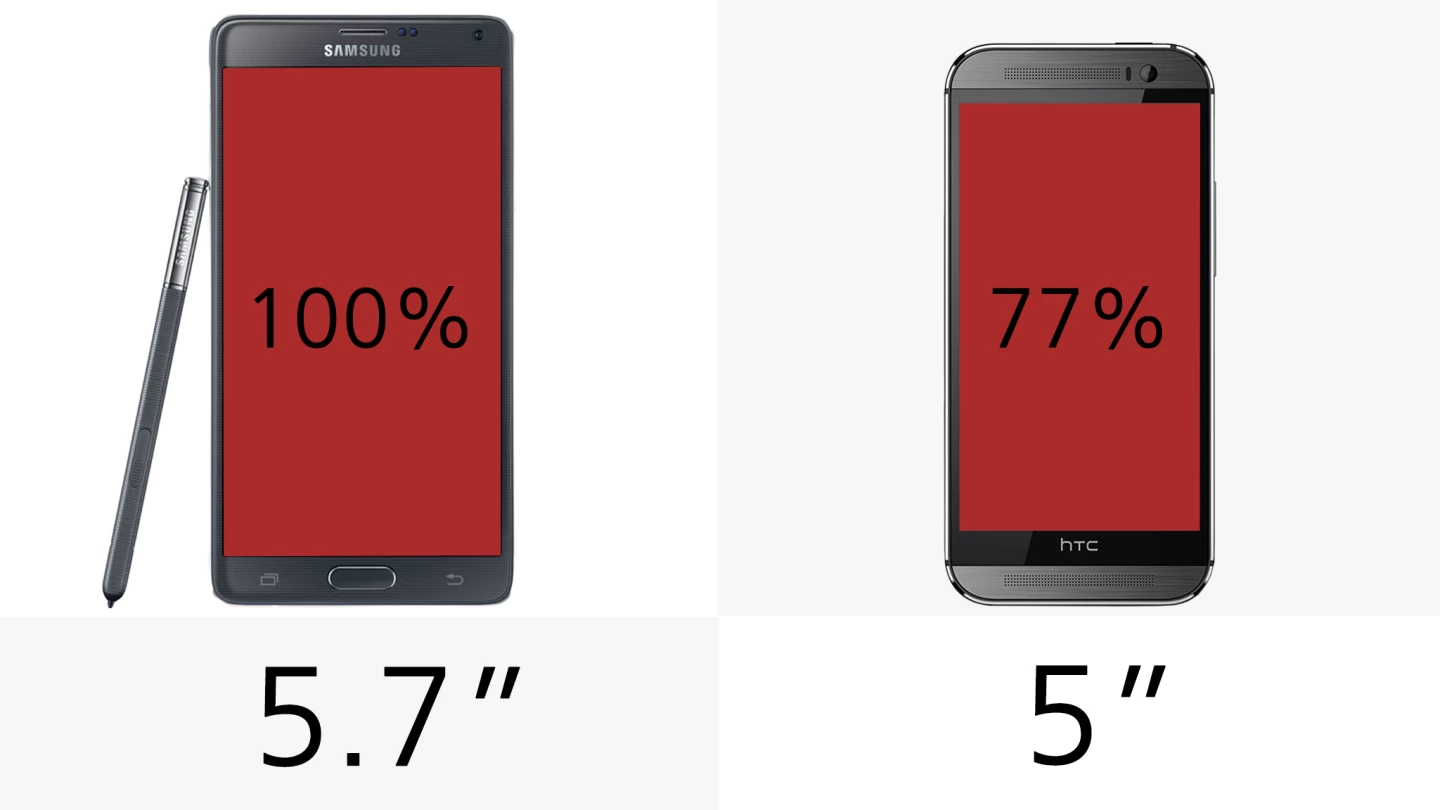
The size of the Note 4’s display places it firmly in the phablet category, and while the size difference here doesn’t look that significant on paper, it amounts to 30 percent more screen real estate on the Samsung device.
Display (resolution)
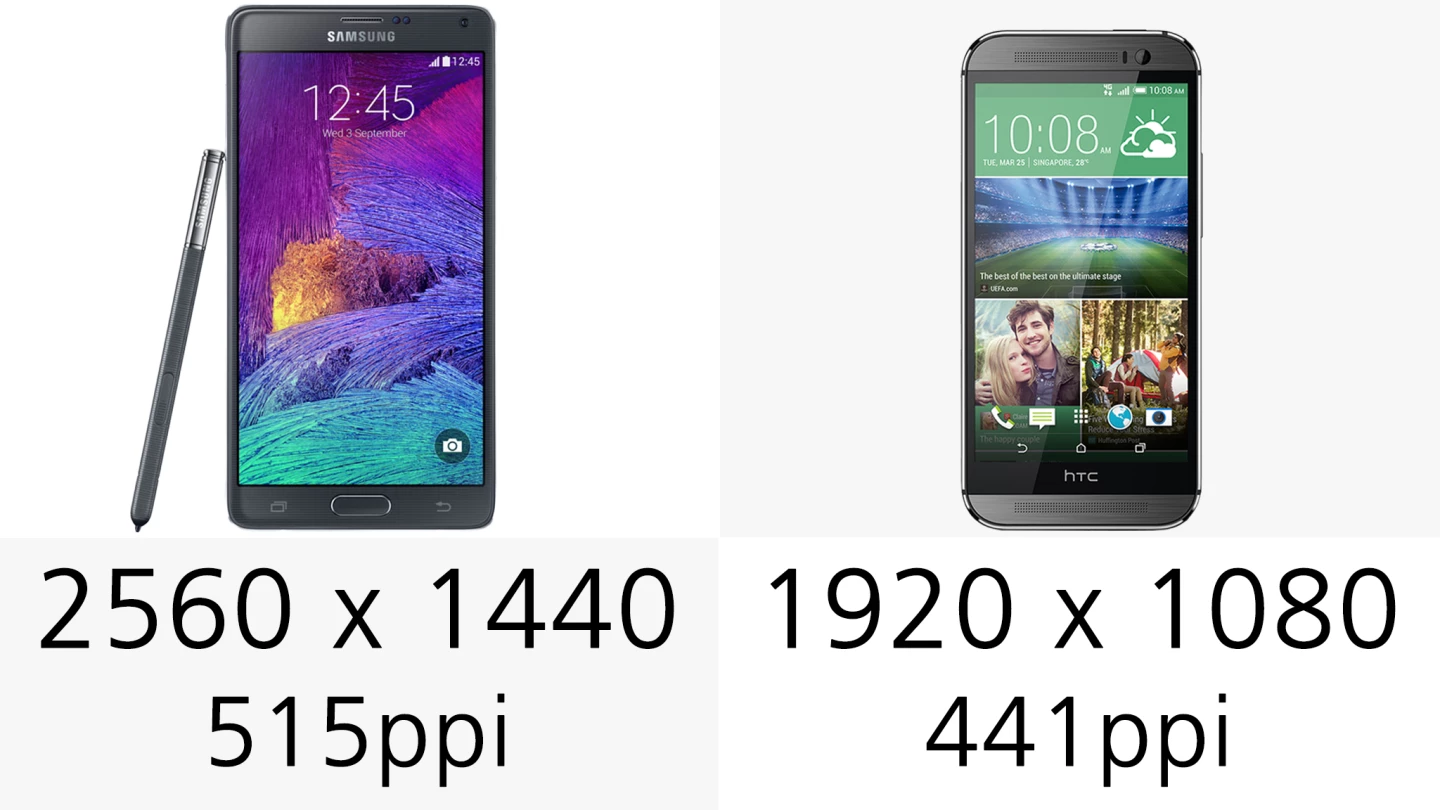
The Note 4’s screen isn’t just bigger than its rivals – it’s also significantly sharper, offering a quad HD resolution, equating to 25 percent more pixels per inch (PPI).
Stylus
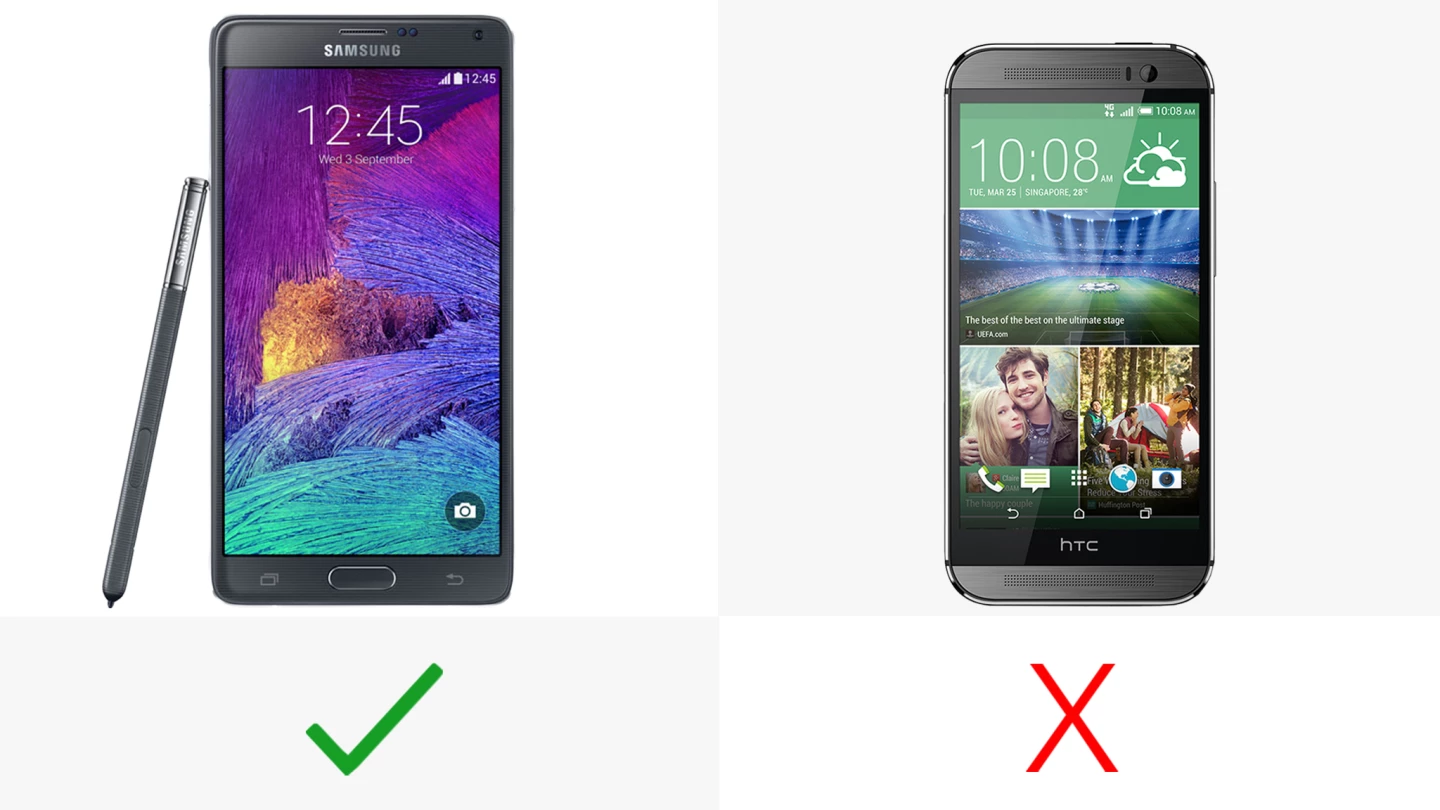
Samsung’s Note line is famous for its stylus integration, and that emphasis hasn’t shifted with this fourth gen handset. The revamped S Pen features twice the pressure sensitivity of the previous version.
Motion Launch
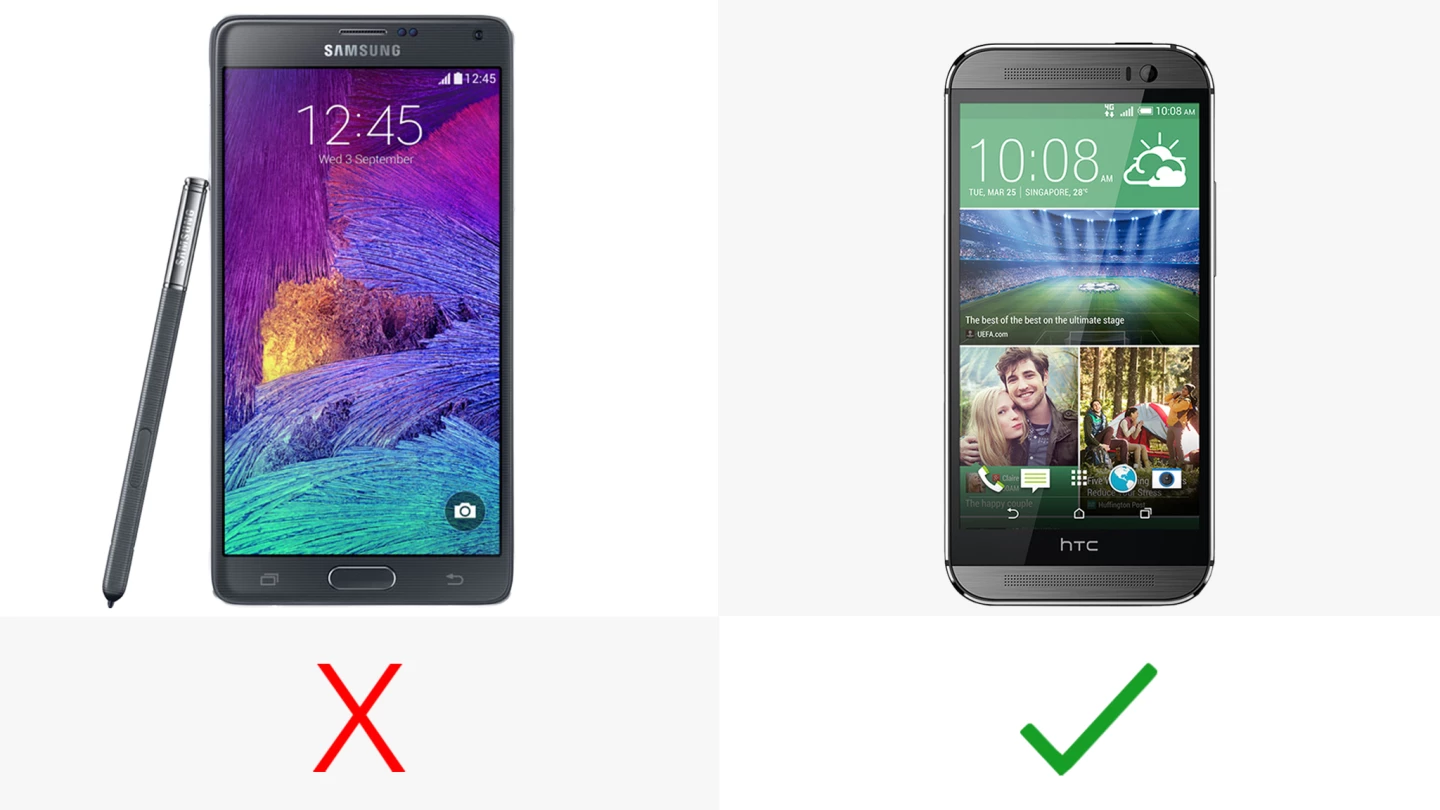
HTC’s device packs a tap-to-unlock feature known as Motion Launch. Users can either double tap the handset’s display to wake it, or slide up, down, left or right to performance different functions. You can also click the volume keys when the device is in landscape orientation to quickly launch the camera.
Fingerprint sensor
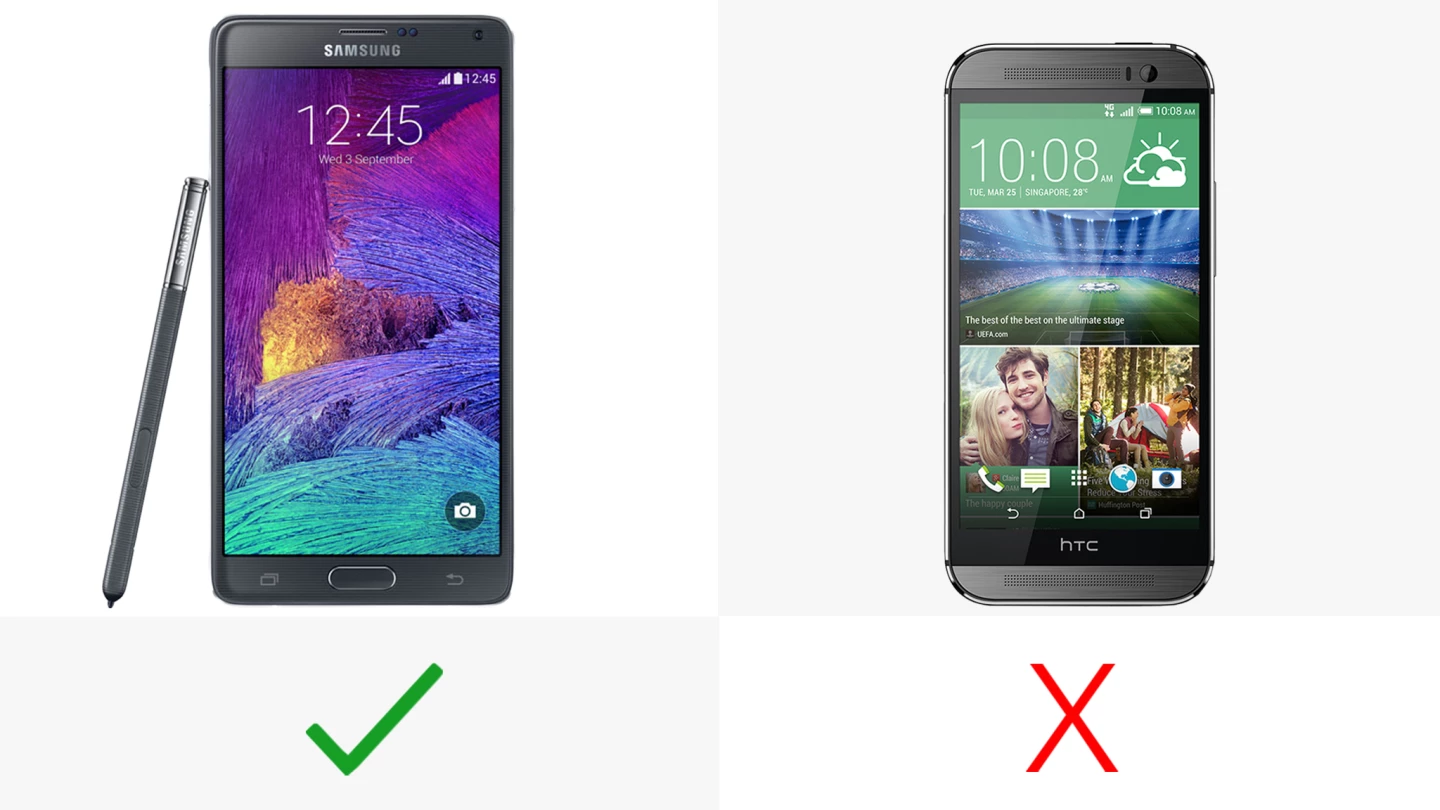
Like the Galaxy S5 and Galaxy Alpha smartphones (and Galaxy Tab S tablet), the Note 4 sports a fingerprint scanner. It allows users to bypass other security features by swiping a finger across the home button.
Heart rate monitor
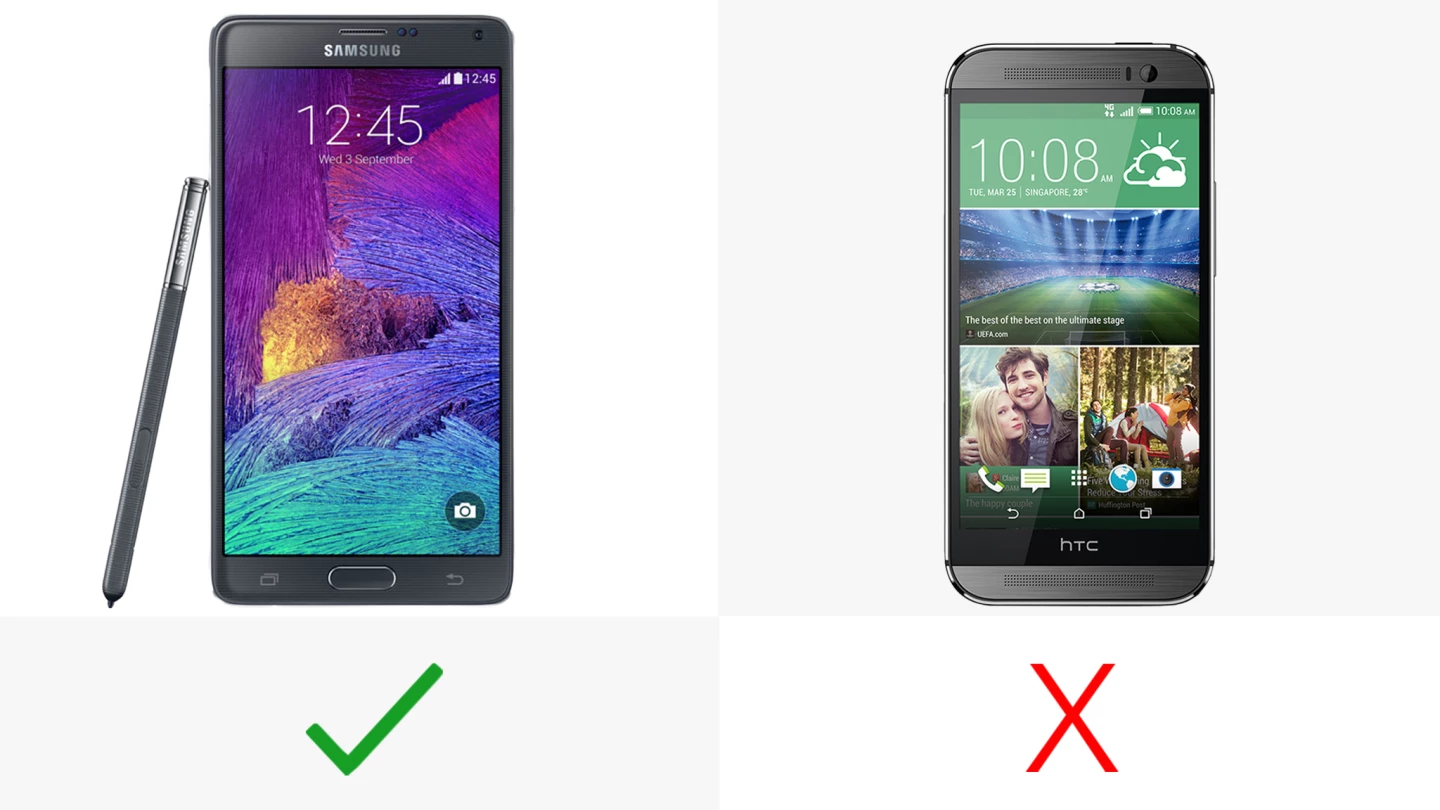
Only the Samsung device packs heart rate monitoring tech. It sits on the phablet's backside, just below its camera.
Battery
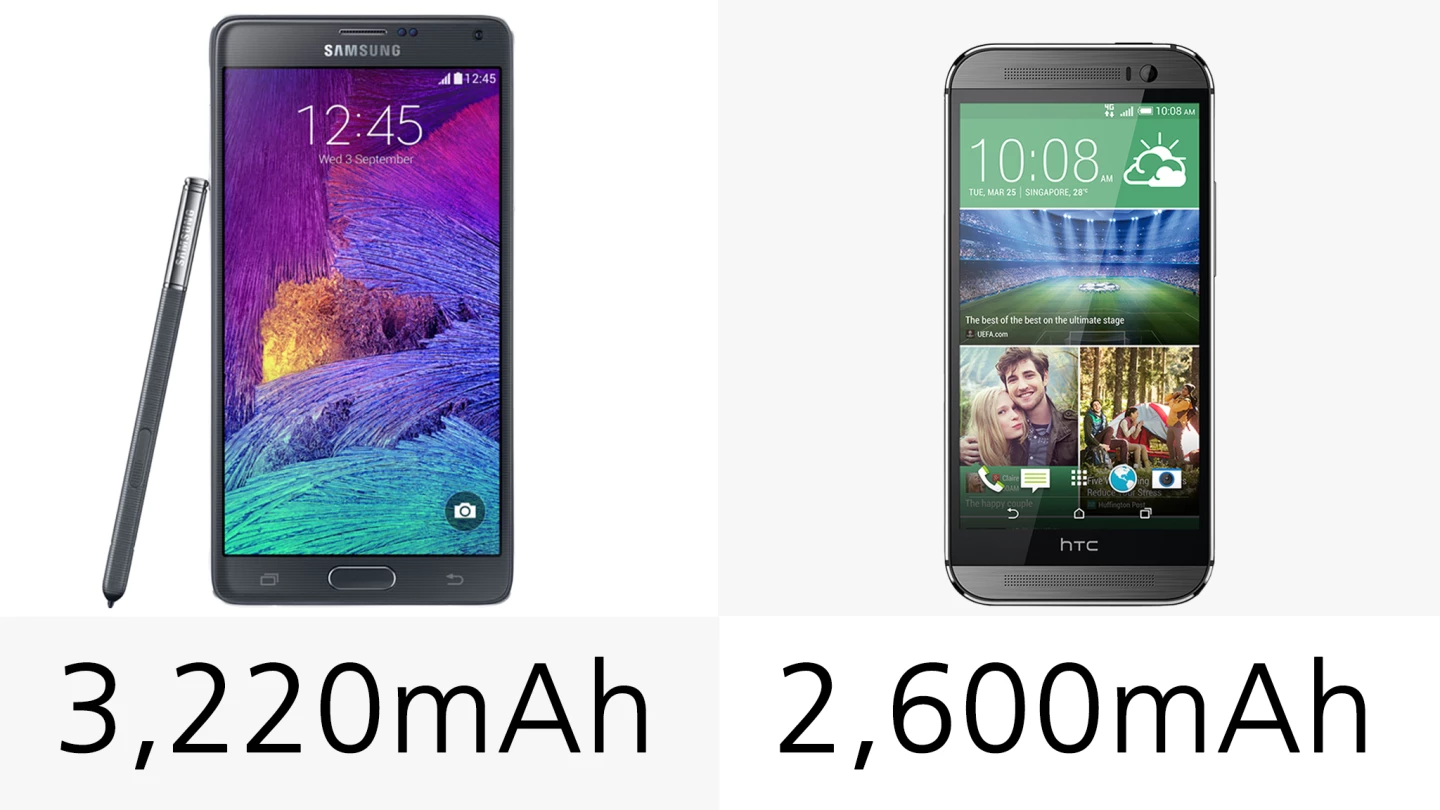
The Note 4’s battery holds more juice than the One’s, and Samsung says that the Note 4 will last longer than the Note 3 did. In our testing, though, we found HTC’s device to offer great battery life.
Ultra/Extreme Power Saving Modes
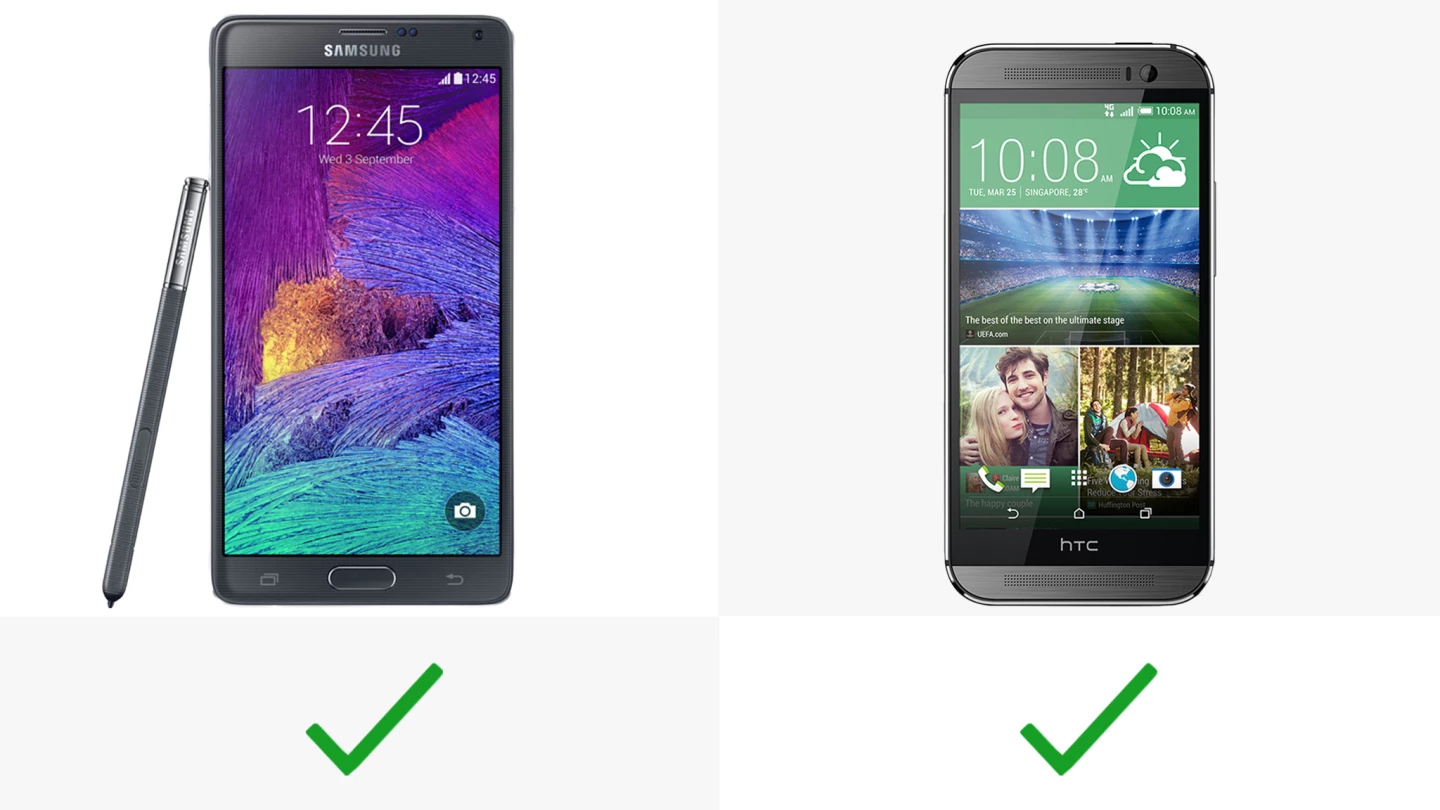
Both devices offer similar power sipping modes that cut down on available functions to extend battery life when charge is low.
Water resistance
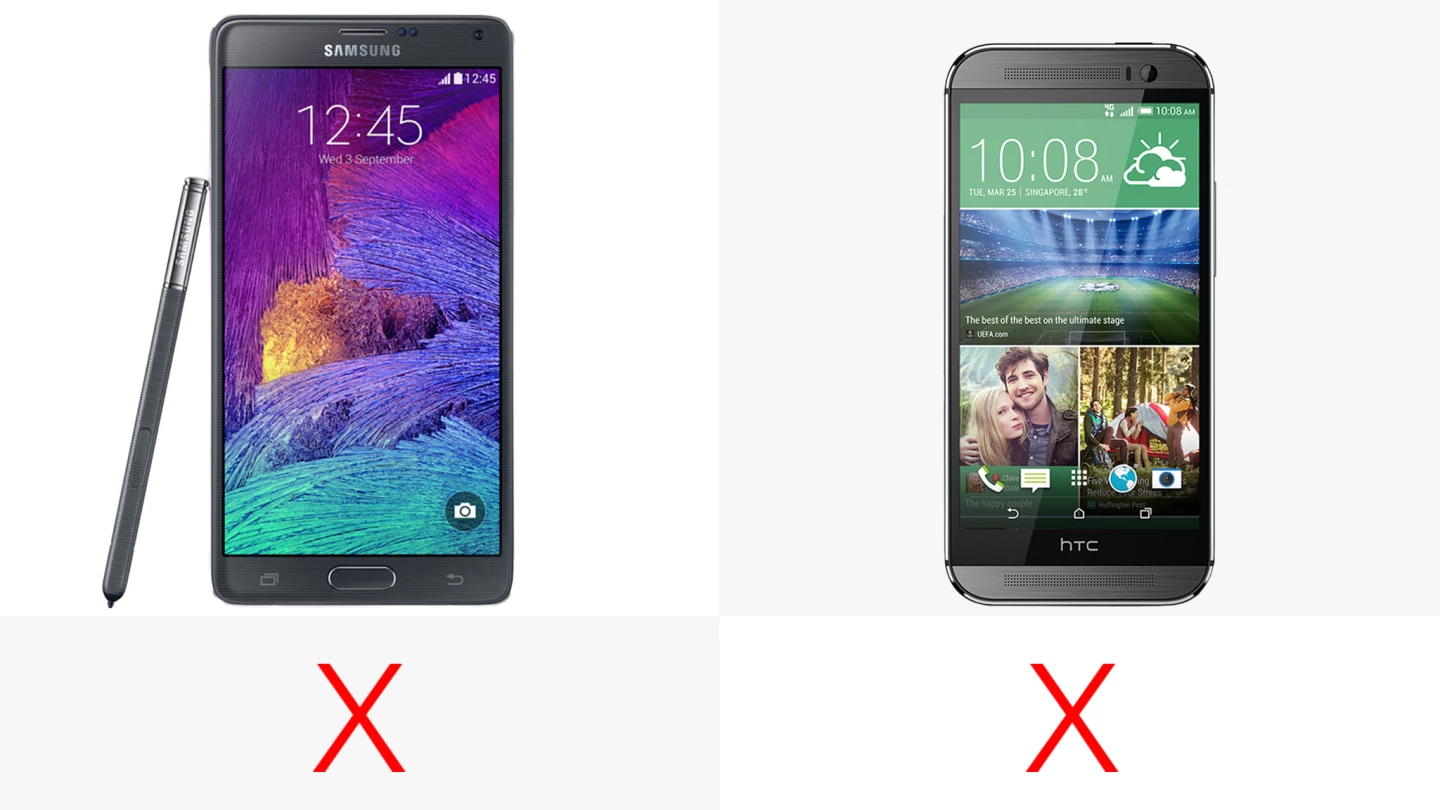
Neither handset features water resistance tech.
Fast charging
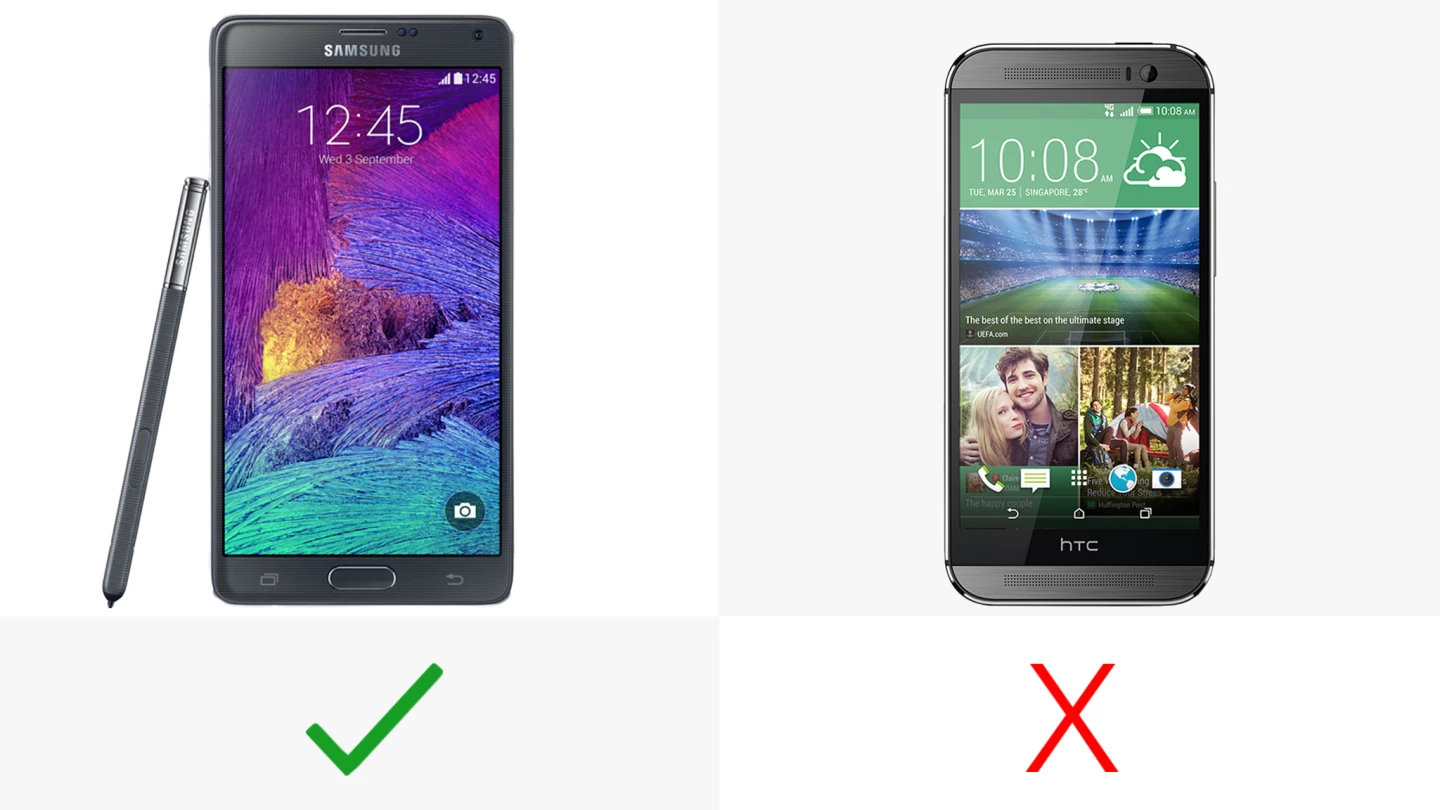
According to Samsung, if you use the supplied charger with the Note 4, then the battery will jump from 0 to 50 percent charge in around 30 minutes.
Cameras
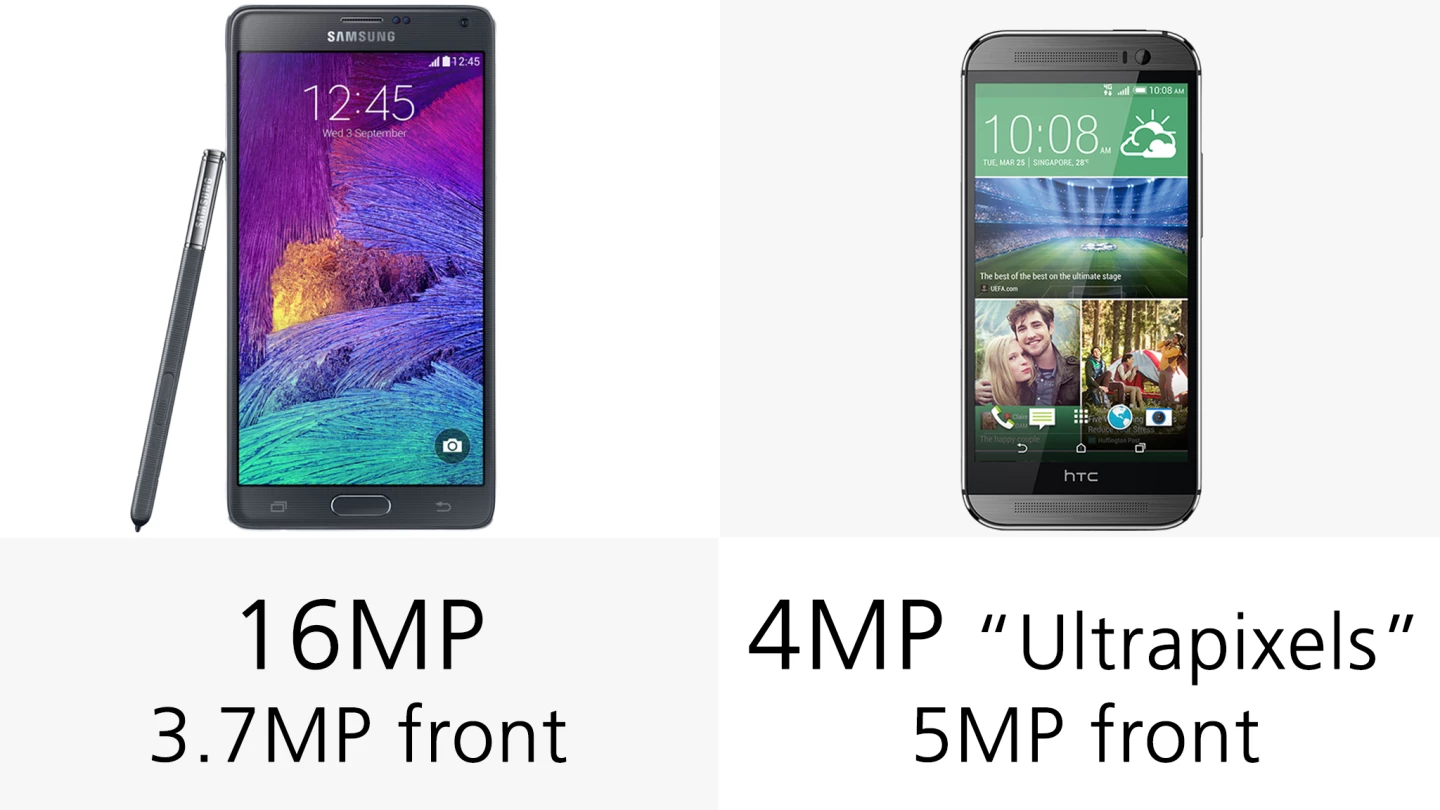
The Note 4’s rear camera packs significantly more megapixels than the One’s. However, according to HTC, the One’s “Ultrapixel” tech means that each pixel is bigger and takes in more light. Regardless of the specs, we liked the One’s camera in our review.
The One’s front-facing shooter is great for selfie lovers, packing great picture quality and a range of touch-up tools.
We’ll have to wait until we get some extended hands-on time with the Note 4’s camera to make a judgement on its potency.
Depth sensor
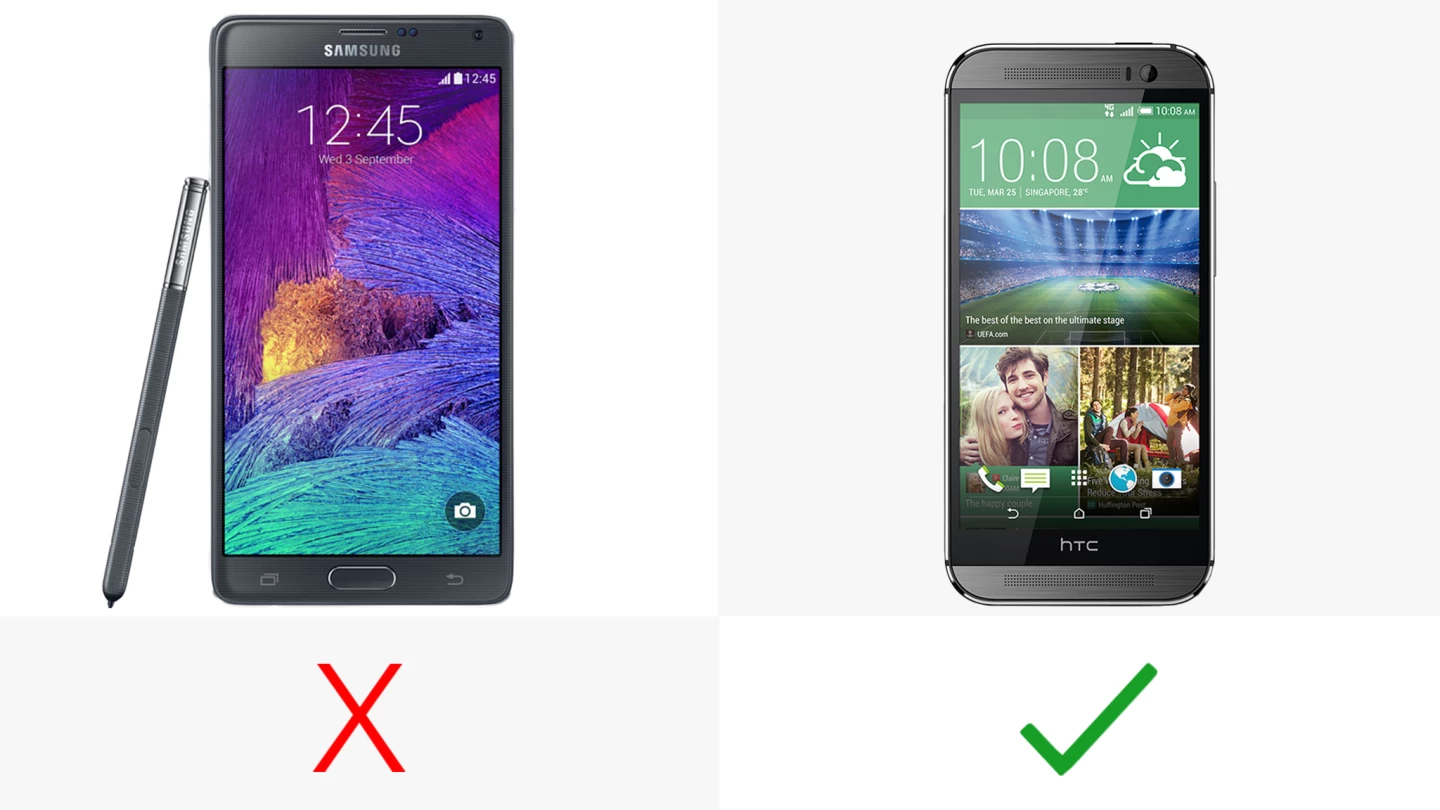
There are actually two camera lenses on the back of the HTC handset, allowing for a number of post-shot depth effects, including the ability to refocus images.
Front-facing speakers
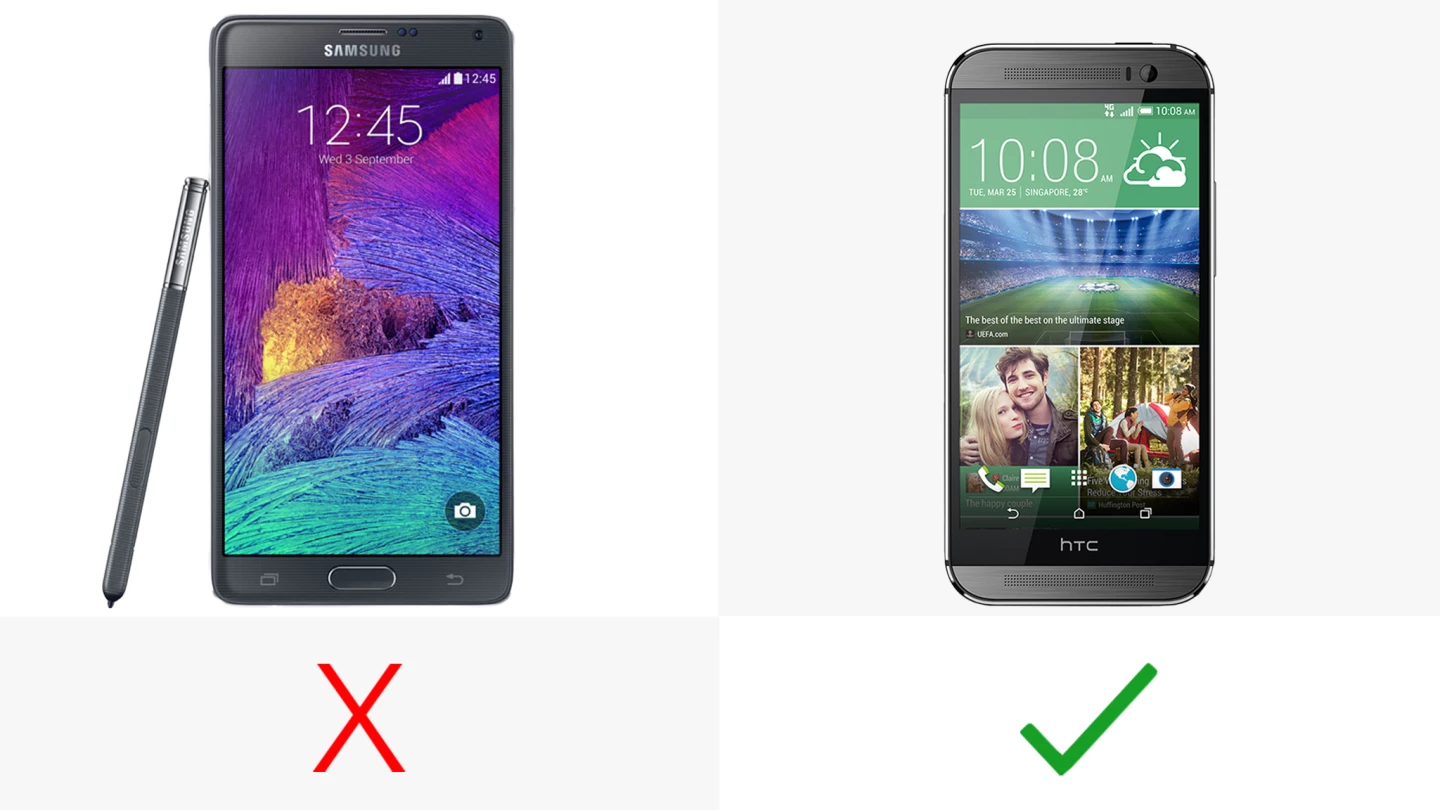
The One packs stereo front-facing speakers that pump out the best audio we’ve heard from a smartphone.
Infrared
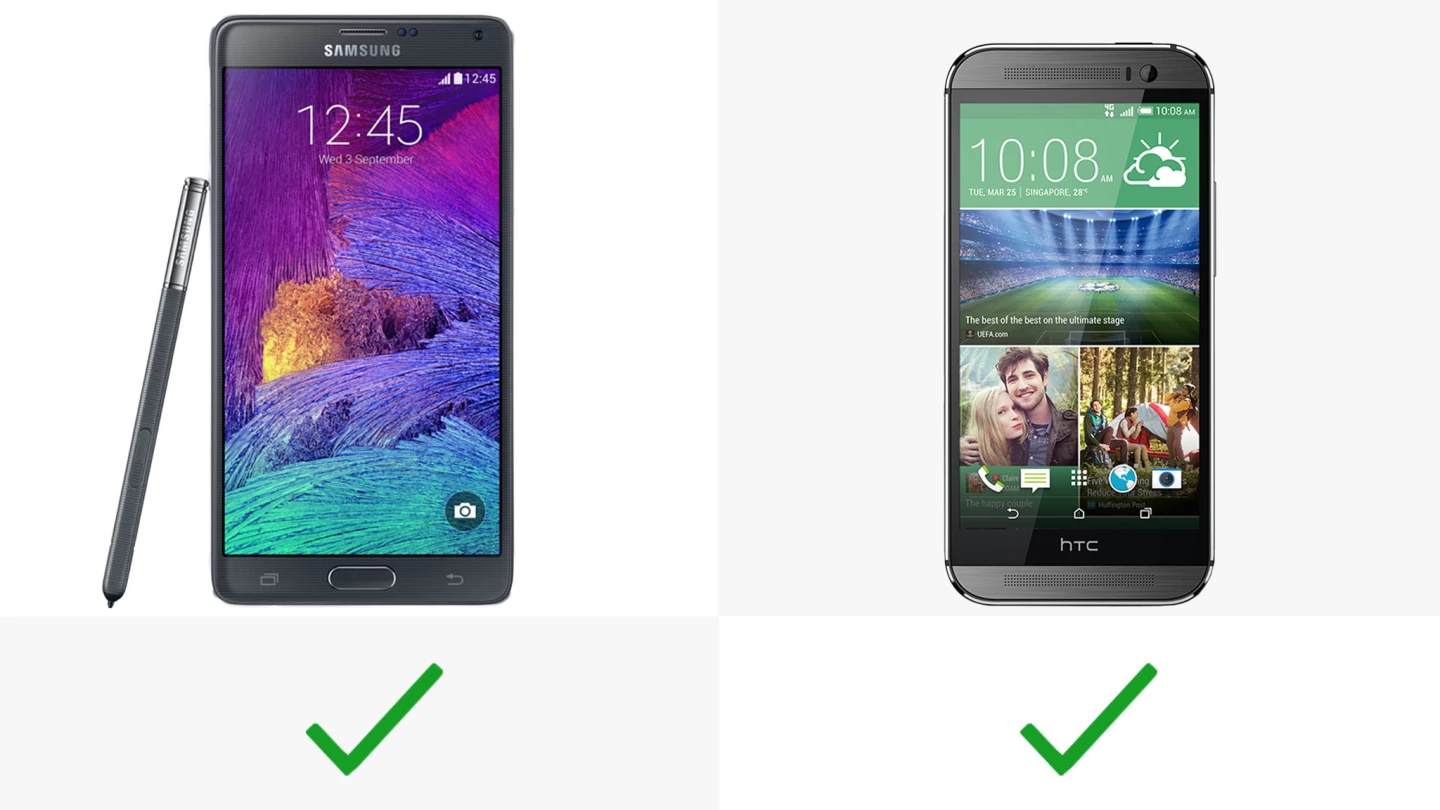
Both devices pack IR blasters, meaning they can be used as TV remotes.
Split-screen multitasking
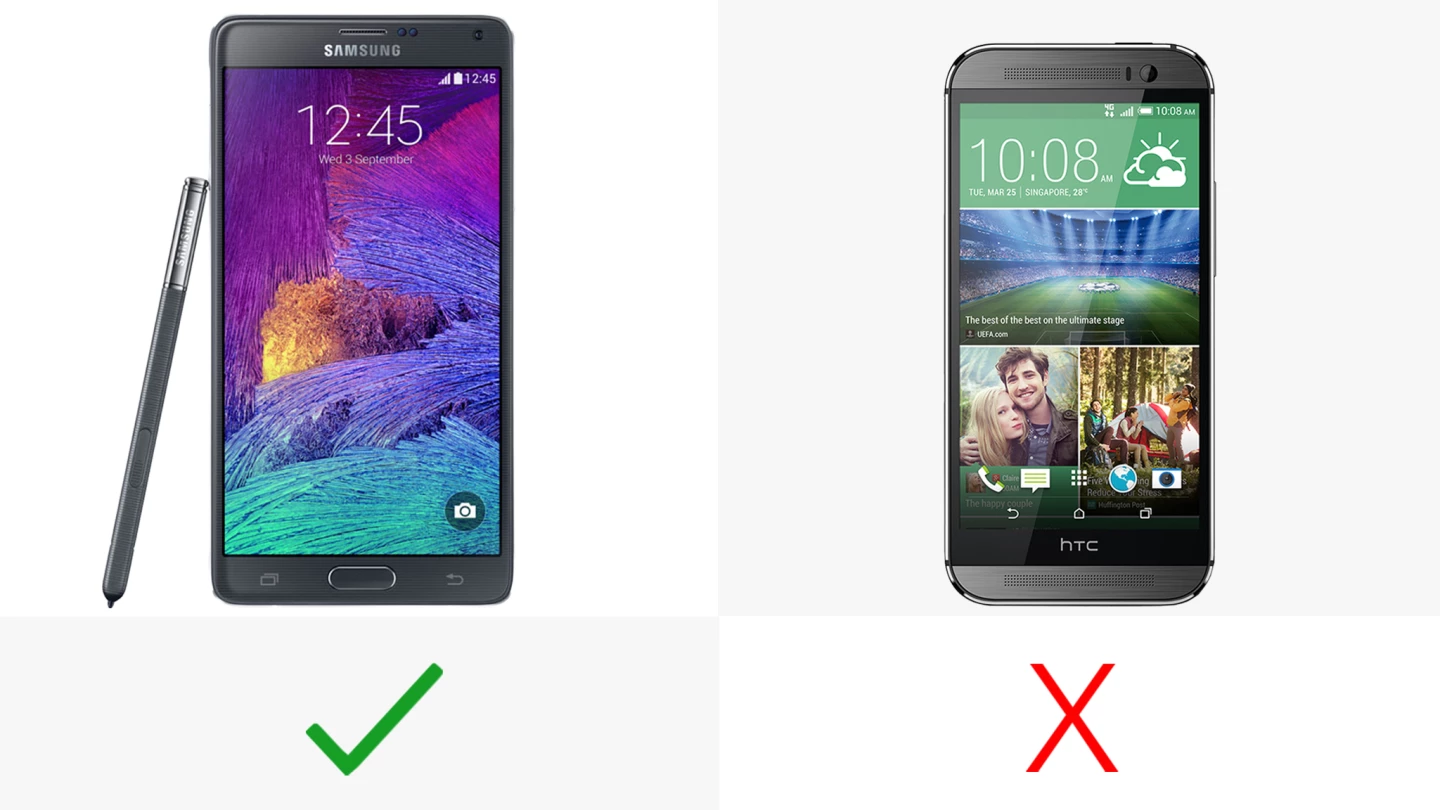
Like other Samsung smartphones, you can split the Note 4's screen to simultaneously run two applications. On the Note 4, Samsung tied its Multi Window to the recent apps button, and is also emphasizing the seamless switching among single window, dual window and pop-up windows.
One-handed mode
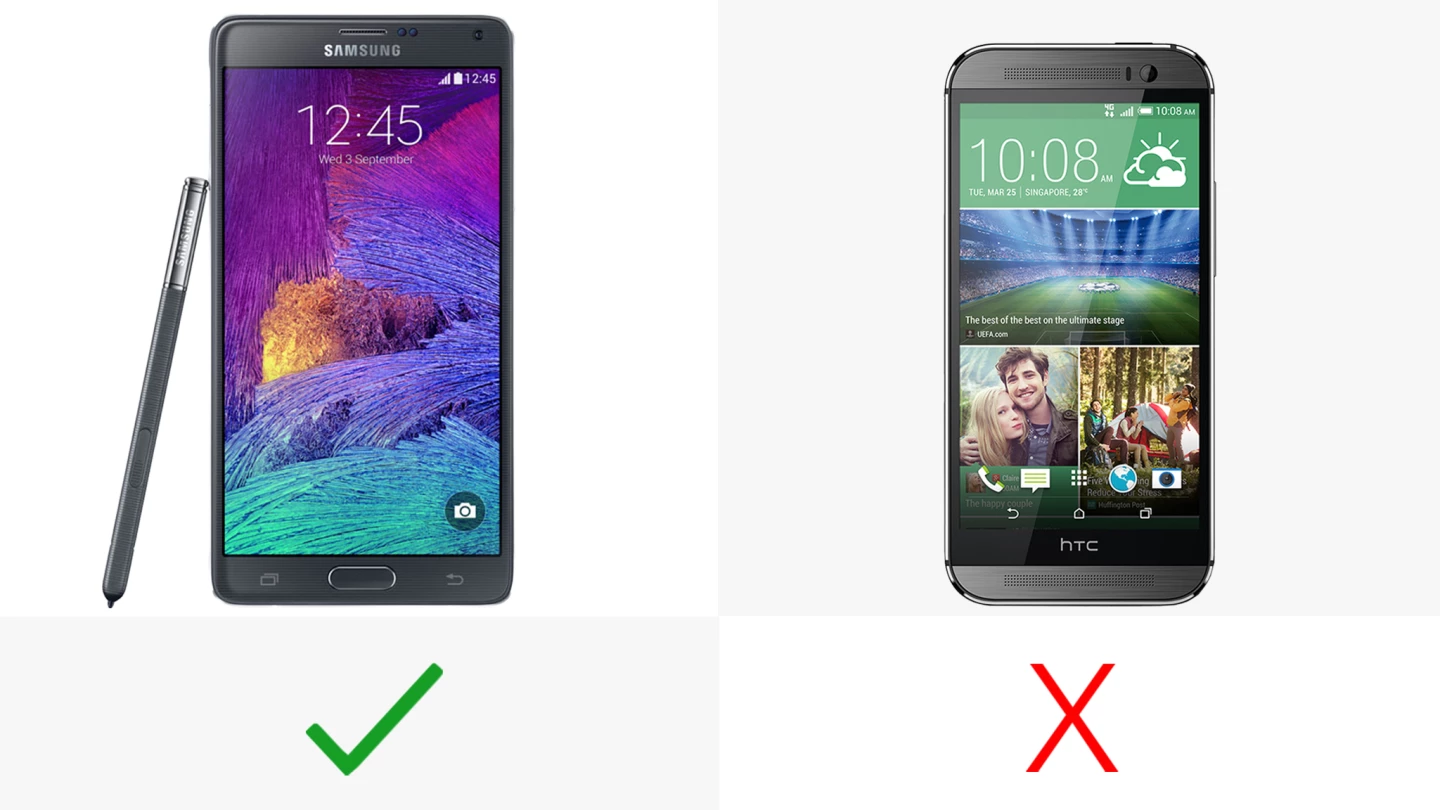
Given that the Note 4 is a pretty sizeable device, Samsung has included a gesture that quickly shrinks the useable display down to a more manageable size for one handed use.
Virtual reality
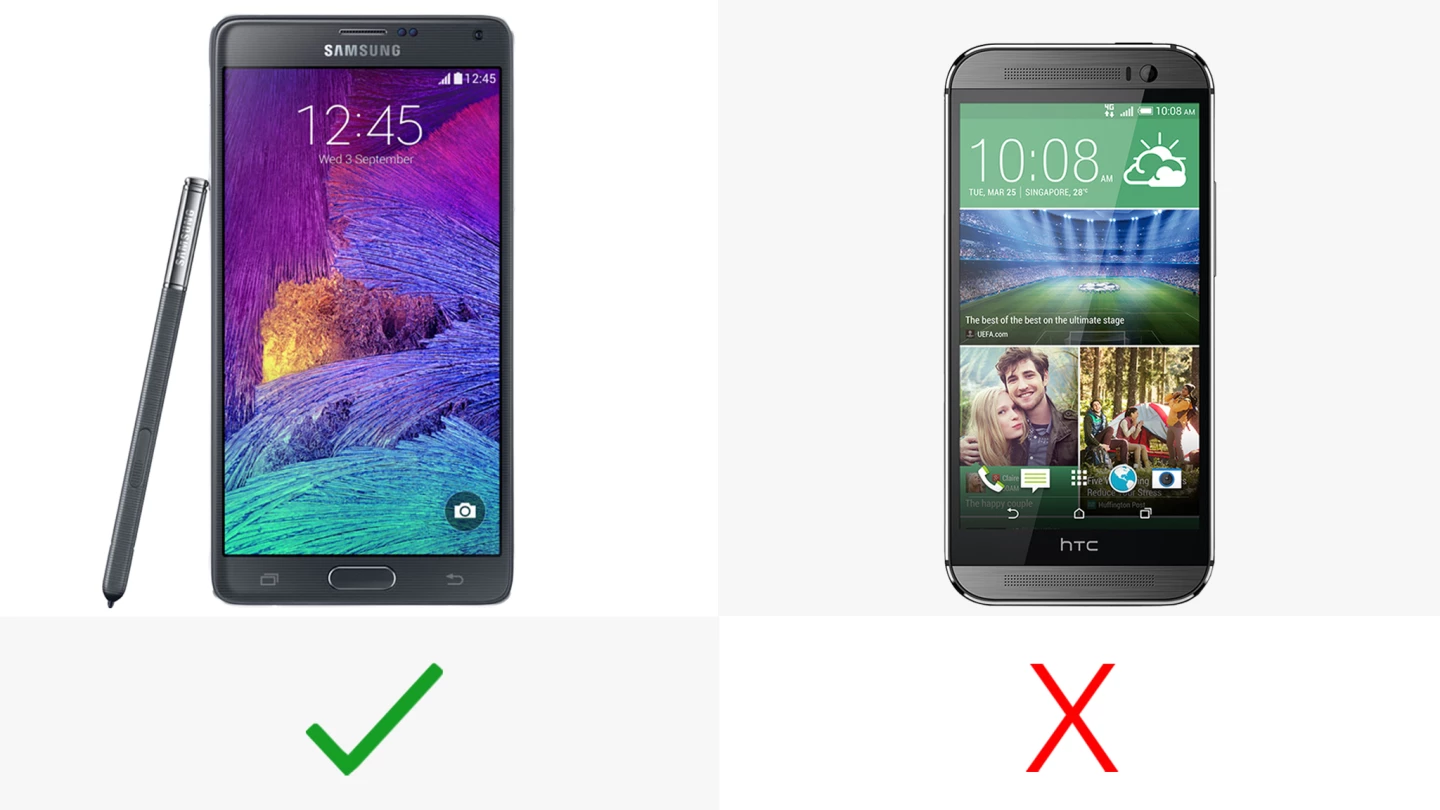
While Samsung’s handset doesn’t pack any virtual reality credentials on its own, it’s designed to be the beating heart of the company’s new, Oculus-powered Gear VR headset, providing both the display and processing power for the accessory.
The One M8 should work with Google Cardboard, but right now it's a developer kit and not aimed at consumers.
Storage
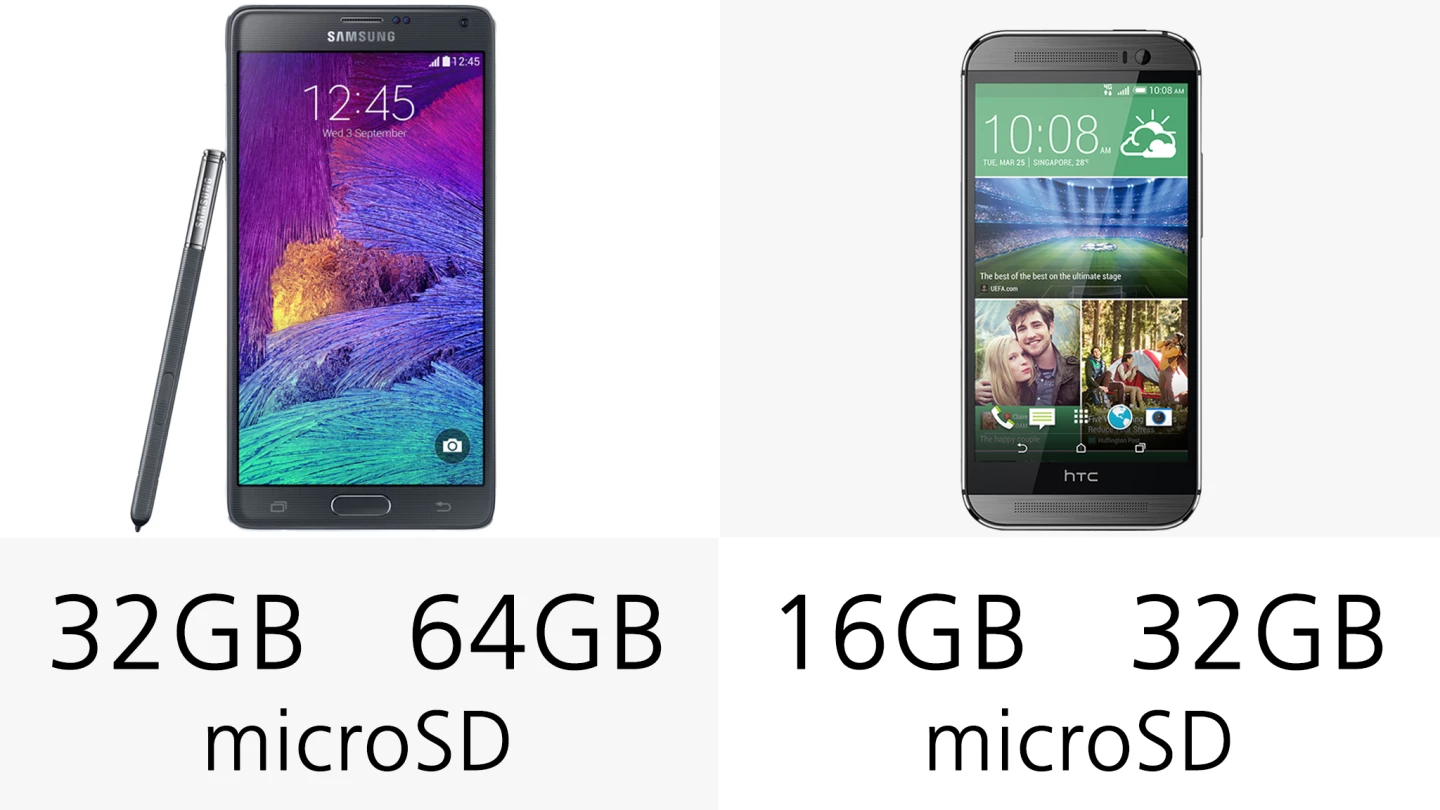
Both handsets are available in different storage configurations. Luckily, they also both offer microSD card slots for easy expansion.
Processor
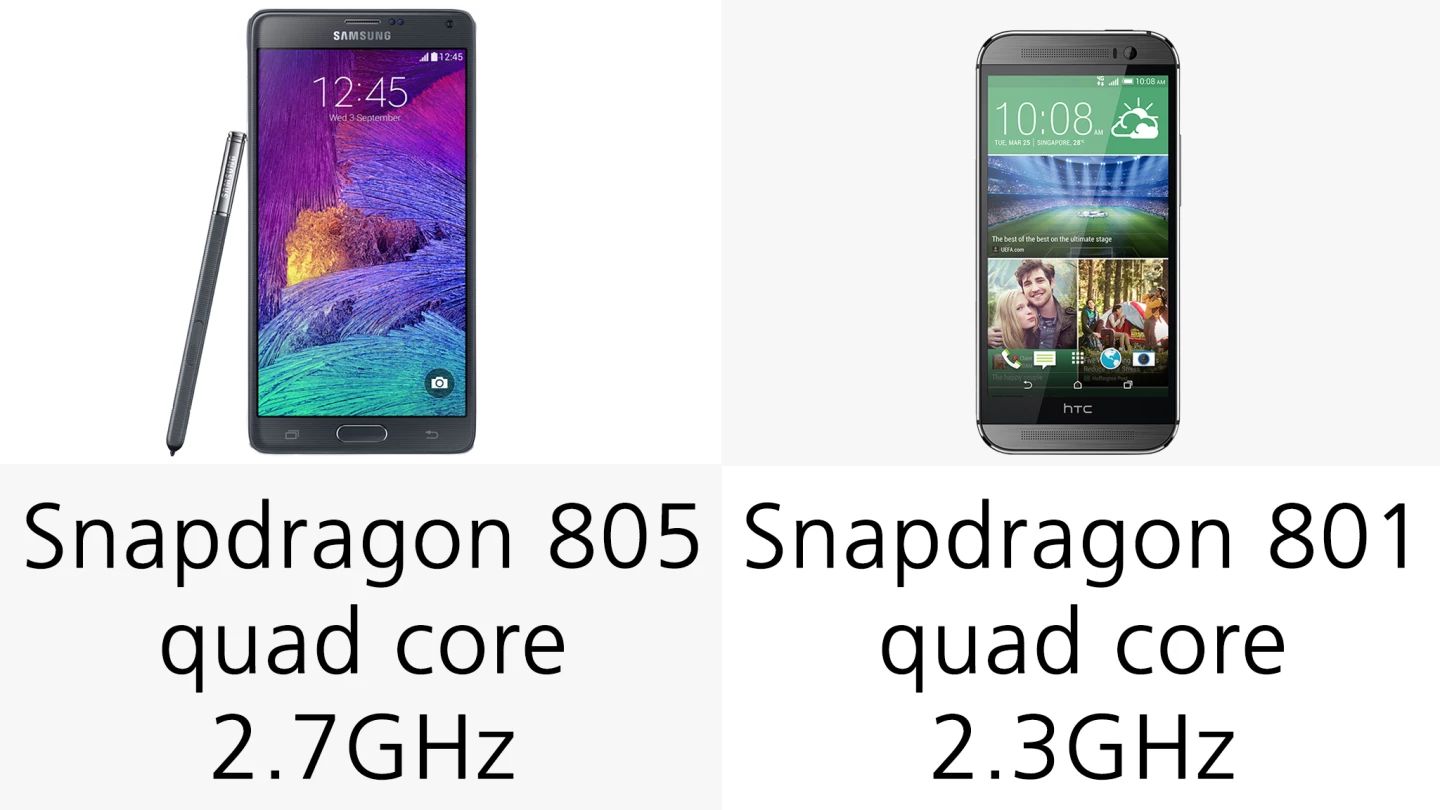
The processors powering both these handsets are more than up to the task of providing smooth and zippy performance, but the Note 4’s chip packs a slightly higher clock speed than its rivals.
You’ll want to note that we’re listing the chip that you’ll find in the LTE version of Samsung's device, with the HSPA/international version packing an eight core Exynos CPU.
RAM
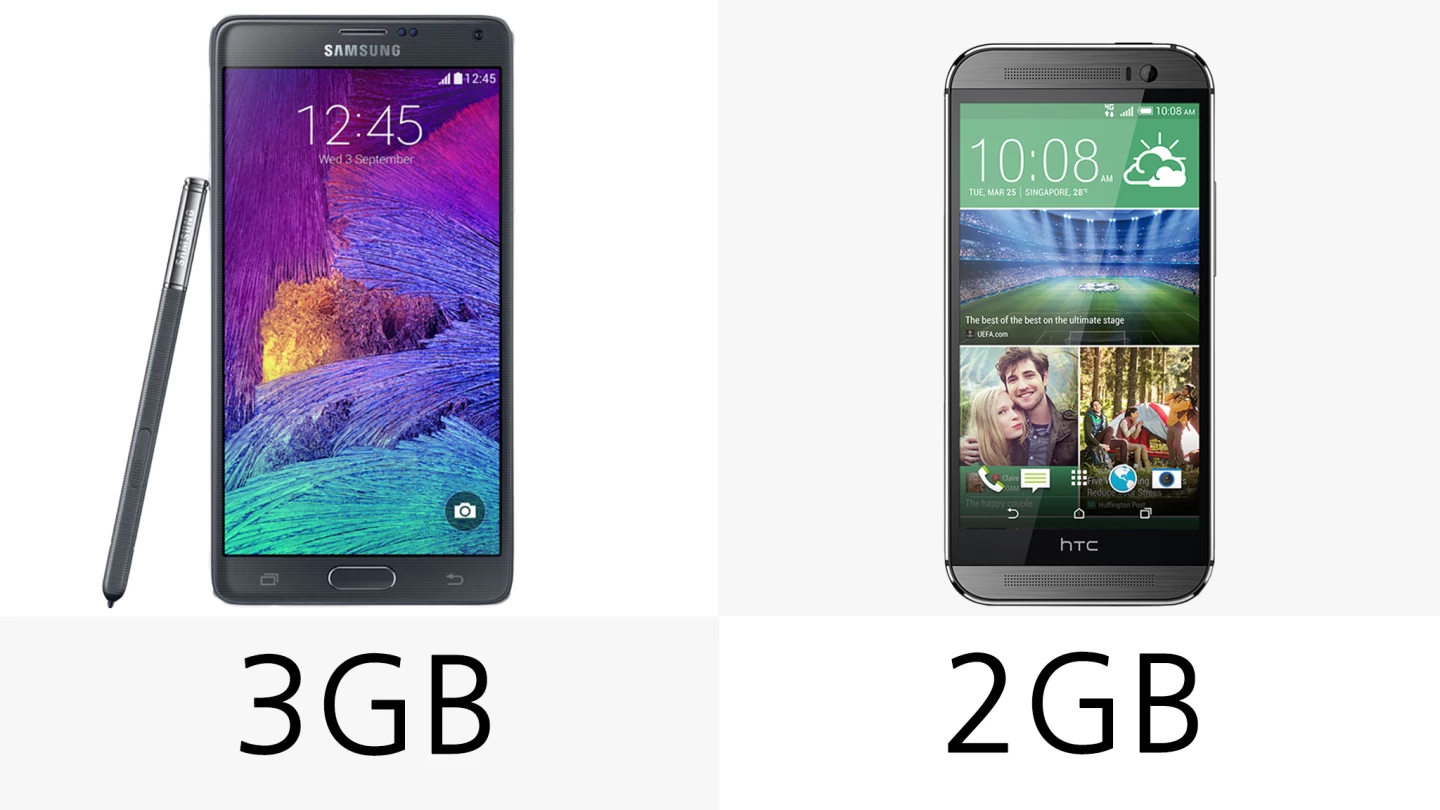
The Note 4 packs an extra gigabyte of memory over the One (M8).
Software
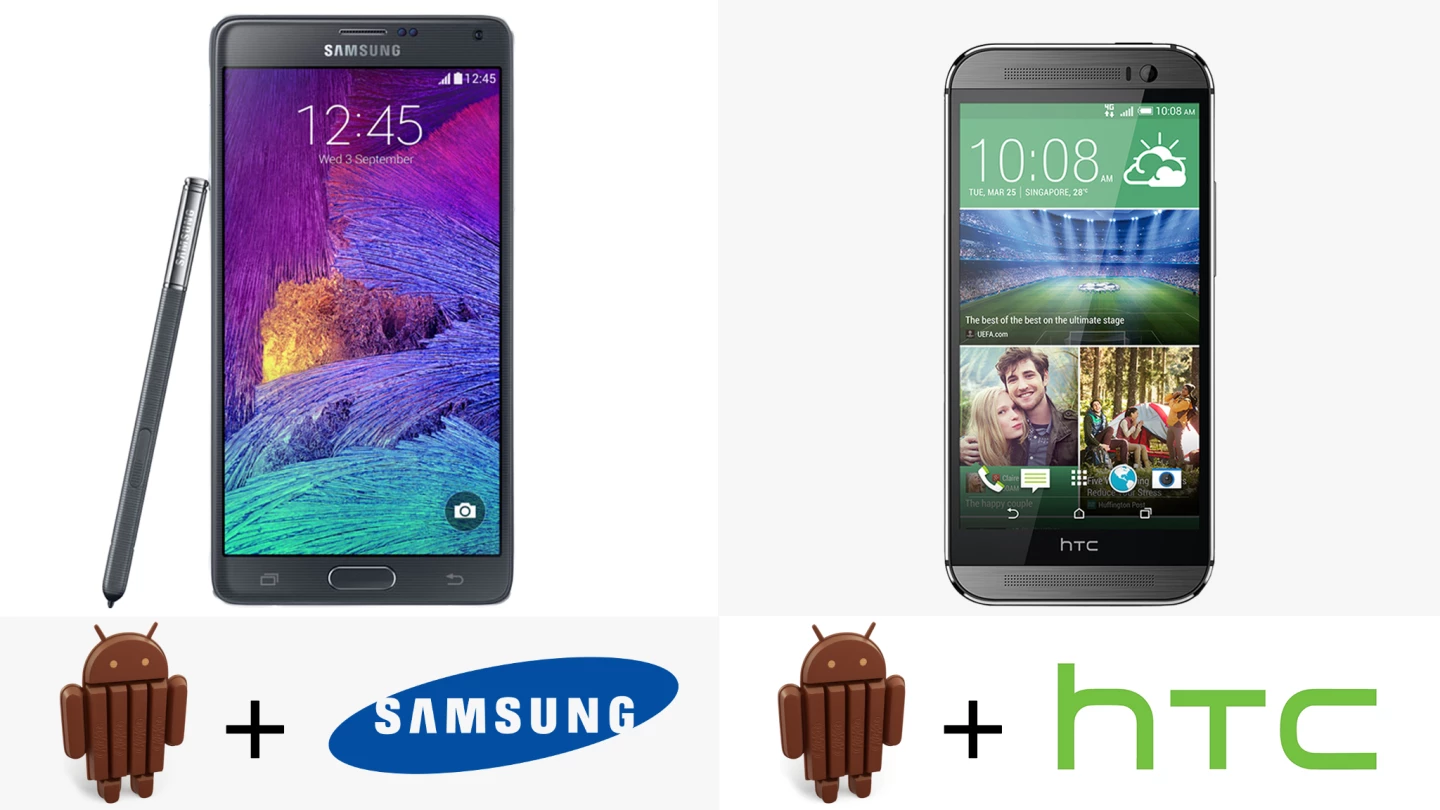
Both devices run the latest 4.4 KitKat flavor of Android, each with their respective company’s UI overlay.
Release
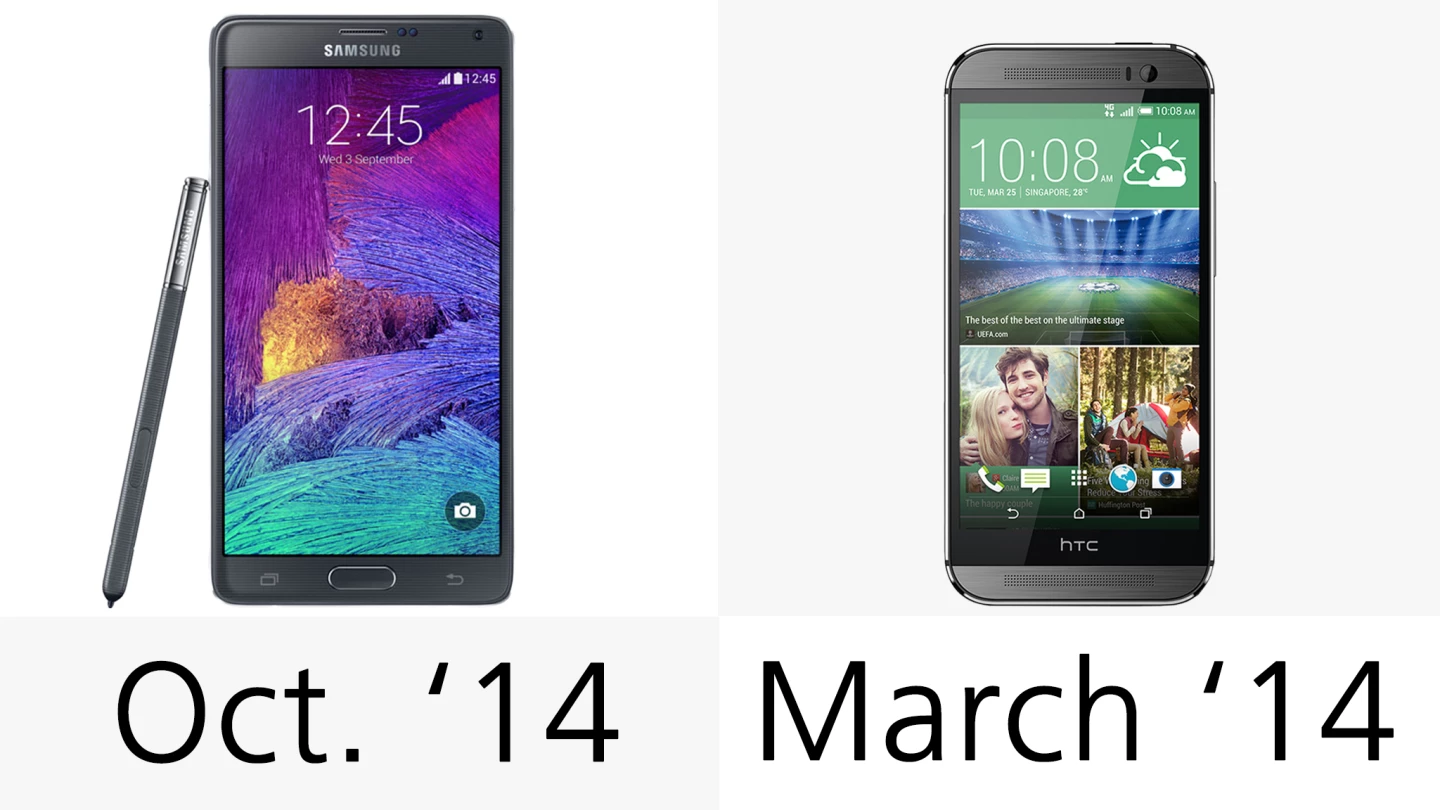
The Note 4 is set to launch next month (October 17, to be exact), while the HTC One (M8) has been on shelves for almost six months.
Starting price (off-contract)
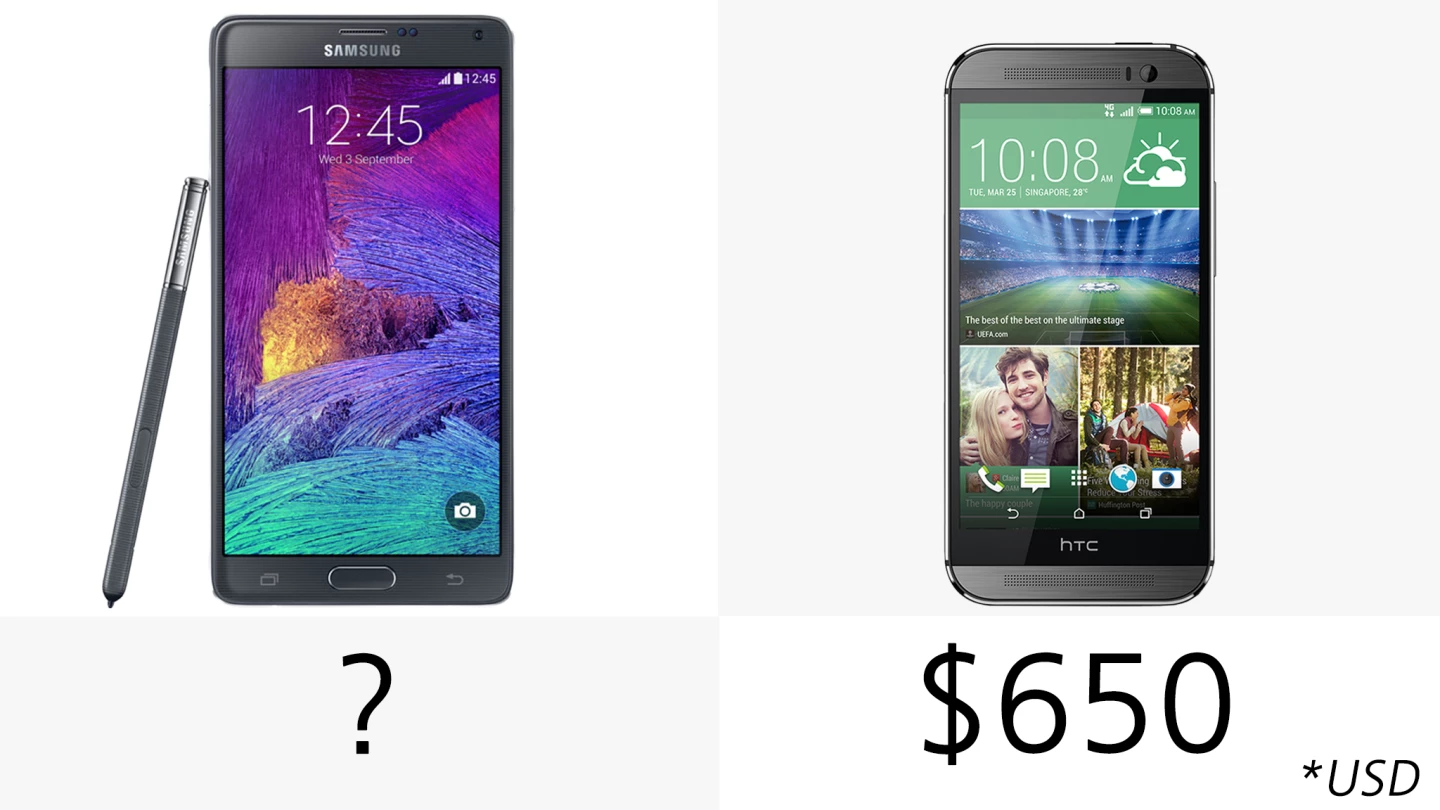
HTC’s handset comes in at the now fairly standard US$650, while the Note 4’s price tag remains unknown. If previous versions of the handset are anything to go by, then we’d expect the new version to retail for around $700 off-contract or $300 with a two-year agreement.
For more on the two devices you can check out our full review of the HTC One (M8), and our Samsung Galaxy Note 4 hands-on.































